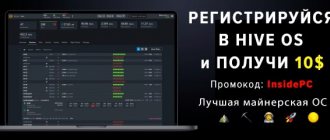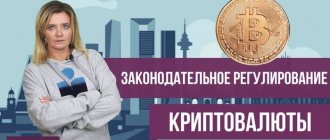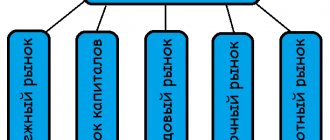Concepts
The full name of the Federal Law of July 31, 2020 No. 259-FZ (hereinafter referred to as Law No. 259-FZ) is “On digital financial assets, digital currency and on amendments to certain legislative acts of the Russian Federation.” It came into force on January 1, 2021 .
The purpose of Law No. 259-FZ is to legislatively consolidate in the Russian legal field the definitions of the currently most widely used financial assets created and/or issued using digital financial technologies. This:
- distributed registry of digital transactions;
- attracting investments by Russian legal entities and individual entrepreneurs by issuing tokens, which are one of the types of digital financial assets.
Digital financial assets
These are digital rights, including monetary claims, the ability to exercise rights under issue-grade securities, the right to participate in the capital of a non-public joint-stock company, the right to demand the transfer of issue-grade securities, which are provided for by the decision on the issue of digital financial assets in the manner established by Law No. 259-FZ.
Their release, accounting and circulation are possible only by making (changing) records in an information system based on a distributed registry, as well as in other information systems.
Digital financial assets are not legal tender on the territory of the Russian Federation.
Rights certified by fin. digital assets arise from their first owner from the moment a record of the crediting of such assets to him is made in the system. Individual entrepreneurs and organizations will be able to make these entries.
There is no complete list of transactions that can be made with digital financial assets in Law No. 259-FZ . But what is mentioned here, in particular, is the purchase and sale and exchange for the same assets of a different type.
Digital currency
This is a collection of electronic data (digital code or designation) in an information system that offers and/or can be accepted as
- a means of payment that is not a monetary unit of the Russian Federation, a monetary unit of a foreign state and/or an international monetary or payment unit;
- and/or as an investment.
In relation to them, there is no person obligated to each owner of such electronic data. Exception: the operator and/or nodes (users) of the information system are obliged only to ensure compliance of the procedure for issuing this electronic data and the implementation of actions in relation to them to make (change) records in such an information system with its rules.
Digital currency does not include (letter of the Ministry of Labor dated December 16, 2020 No. 18-2/10/B-12085):
- bonus points;
- bonuses on accumulative discount cards accrued by banks and other organizations for using their services, including in the form of cash (cashback).
For the purposes of the Federal laws on bankruptcy (dated October 26, 2002 No. 127-FZ), on enforcement proceedings (dated October 2, 2007 No. 229-FZ), on anti-corruption (dated December 25, 2008 No. 273-FZ) and on combating money laundering (dated 08/07/2001 No. 115-FZ) digital currency is property . a penalty may be brought against her in the general manner.
You cannot accept payment for goods, works and services in digital currency . This applies, in particular, to Russian companies. Moreover, it is prohibited to disseminate information about the offer and acceptance of digital currency as a method of payment for goods, works and services.
Rights to digital currency can be protected in court under certain conditions . Condition: the owner reported that he has such currency and he made transactions and transactions with it. The procedure for informing will be prescribed in the Tax Code of the Russian Federation.
Information systems in which digital financial assets are issued can also issue digital rights that simultaneously include such assets.
Law No. 259-FZ does not contain the concepts of cryptocurrency (ultimately - digital currency), token (ICO - Initial Token Offering), miner, digital wallet, as well as an electronic agreement - smart contract, although they were originally planned.
The law recognizes operators of information systems in which digital financial assets are issued and exchange operators as non-credit financial organizations.
Taxation of cryptocurrencies in the first edition of bill No. 1065710-7
Taxes and rates:
- Individuals are required to pay personal income tax, and legal entities are required to pay income tax.
- For individuals, the tax rate will be 13% on profit and 15% on income exceeding 5 million rubles per year. Legal entities pay tax at a rate of 20%, while a reduction in the tax base by the amount of depreciation deductions is not provided;
- If during a calendar year the turnover on transactions with digital currencies did not exceed ₽600 thousand, there is no need to report and pay taxes.
Penalties:
- Failure to provide information on the ownership of digital currency, transaction reports to the tax authority, or provision of distorted data - a fine of 10% of the greater of the two amounts - either the purchase amount or the sale amount.
- Failure to submit information on ownership of digital currency, reports on transactions and balances to the tax authority within the prescribed period – RUB 50,000.
- Non-payment or incomplete payment of tax - in the amount of 40% of the amount of unpaid tax.
Since digital currencies are recognized as property, the regulator proposes to establish tax consequences in the bill, similar to property purchase and sale transactions: either personal income tax or income tax.
Transactions with digital currencies are subject to taxation from January 2022. Despite the fact that tax authorities have yet to develop a methodology for determining the market price of digital currency, there is no amnesty for assets held by cryptocurrency market participants before 2022.
It is necessary to note that the bill approved in the first reading provides for the occurrence of notification and tax obligations of the parties when receiving and/or writing off digital currency exceeding an amount equivalent in monetary terms to ₽600 thousand per year. We are not talking about a one-time transaction, as defined in the provisions of Article 6 of Law 115-FZ, but about an annual limit, and in both directions: both receipts and write-offs.
As of early November 2022, the bill is being finalized for the second reading.
Areas of regulation
Law No. 259-FZ regulates:
- issuance, accounting and circulation of digital financial assets (taking into account the provisions of the Law on the Securities Market of April 22, 1996 No. 39-FZ on equity securities);
- features of the activity and responsibility of the operator of the information system in which the release of these assets occurs, and the operator of their exchange;
- circulation of digital currency in Russia.
Also, Law No. 259-FZ contains requirements for the decision to issue digital financial assets. the procedure for maintaining the register of users of the information system and the rules for the exchange of digital financial assets, the procedure for their approval.
The requirements of Law No. 259-FZ do not apply to:
- circulation of non-cash and electronic money;
- issue, accounting and circulation of uncertificated securities.
Regulation of digital financial assets
Much of the law is devoted to the specifics of the issuance and circulation of digital financial assets. Key points:
- The issuance of digital financial assets can only be carried out by a legal entity or individual entrepreneur, on the basis of a decision containing all the information about these assets required in accordance with the law. The decision, in particular, must contain an indication of the information system in which digital financial assets are issued and its operator;
- subsequent accounting, circulation and transfer of financial assets is carried out in the information system in which they were issued, in accordance with the approved rules of the information system;
- The Central Bank of the Russian Federation has the right to establish a list of digital financial assets, the acquisition of which can only be carried out by qualified investors, or a limit for certain digital financial assets, within which such assets have the right to be acquired by unqualified investors. If an unqualified investor has acquired financial assets that can only be transferred to qualified investors, or has acquired digital financial assets in excess of the established limit, then the digital financial asset exchange operator (more on this later) must, at the request of the unqualified investor, purchase these financial assets from him and reimburse him for all received losses, unless the investor provided false information, on the basis of which he was recognized as unqualified;
- the maintenance of the information system in which the issuance, circulation and accounting of digital financial assets is carried out is carried out by a specialized entity - the operator of the information system. The law contains fairly detailed requirements for such an operator, including the need to be included in a special register of the Bank of Russia, and qualification requirements for the manager and officials of such an operator. The Bank of Russia also has the right to establish additional requirements;
- transactions with digital financial assets are carried out through another specialized entity - the operator of the exchange of digital financial assets. Such an operator also needs to enter information about himself into a special register of the Bank of Russia; in addition, there are qualification requirements for the manager and officials. Just like the information system operator, the digital financial asset exchange operator approves the relevant rules;
- one and the same person can be both an information system operator and an operator of an exchange of digital financial assets, if it meets the requirements for these entities;
- a number of features are provided for the issuance of digital financial assets that certify the possibility of exercising rights to shares or the right to demand the transfer of shares. For example, such an issue is prohibited if the joint stock company has previously issued shares in ordinary (uncertificated) form. At the same time, for example, state registration of the issue of shares in the form of digital financial assets is not required;
- the operator of the information platform and the operator of the exchange of digital financial assets are responsible for identifying clients, collecting and providing information about clients and their transactions in accordance with the legislation on combating money laundering and the financing of terrorism;
- There are special requirements for advertising of digital financial assets: advertising cannot be carried out until the decision on the issue of digital financial assets is published. In addition, it should not contain promises of income from digital financial assets or a forecast of growth in their market value, but must contain the name of the entity issuing digital financial assets and the address of the website on which the decision is posted, information about restrictions for unqualified investors, as well as a warning that digital financial assets are a “high-risk” financial instrument and their acquisition may result in the loss of funds.
Include in expense details
On January 1, 2022, changes to the Federal Law of December 3, 2012 No. 230-FZ “On control over the compliance of the expenses of persons holding public positions and other persons with their income” came into force. According to them, certain categories of persons are required to provide, in the prescribed manner, information about their expenses, as well as the expenses of their spouse and minor children for each transaction for the acquisition, including digital financial assets and digital currency.
Considering that the status of digital financial assets and digital currency in the Russian Federation was established only from 01/01/2021, the corresponding transactions for their acquisition must be reported for the first time for the period of 2021 (letter of the Ministry of Labor dated 12/16/2020 No. 18-2/10/B-12085) . First of all, this applies to substitute state and municipal employees.
Decree of the President of the Russian Federation dated December 10, 2020 No. 778 with measures to implement certain provisions of Law No. 259-FZ approved the form “Notification of the availability of digital financial assets, digital rights, including simultaneously digital financial assets and other digital rights, utilitarian digital rights, digital currency.”
It is filled out by applicants for federal civil servant positions. And from July 1, 2021, information on digital financial assets, rights and currency must be submitted as part of an updated certificate of income, expenses, property and property-related obligations.
What restrictions are introduced on the use of cryptocurrency in Russia?
Legal entities whose personal law is Russian law, branches, representative offices and other separate divisions of international organizations and foreign legal entities, companies and other corporate entities with civil legal capacity and created on the territory of Russia do not have the right to accept digital currency as consideration for transferred goods, work performed by them, services provided by them, or any other method that allows payment for goods with digital currency. This requirement also applies to individuals who are actually in Russia for at least 183 days over the next 12 consecutive months.
These persons may demand judicial protection of the digital currency they own, but only if they are informed of its availability in accordance with the legislation on taxes and fees.
Also in Russia, it is prohibited to disseminate information about the offer or acceptance of digital currency as a consideration for goods transferred by them, work performed by them, services provided by them, or any other method that suggests payment in digital currency for goods.
Government employees must include digital currency in their asset declarations. Officials are also prohibited from investing in digital financial assets issued in information systems organized in accordance with foreign law, and in digital currency.
Expert opinion: the law left many unclear questions
“The bill on digital financial assets distinguishes between the concepts of digital financial assets and digital currency,” explains Tatyana Maksimenko, . — DFA are digital rights, and digital currency is a code that can be used as a means of payment. But we are sure that these concepts should not be separated. There must be a uniform definition of digital rights, which already exists in Article 141.1 of the Civil Code. It already provides for the possibility of transferring rights to digital format.”
“The CFA law itself will affect the regulation of tokens, although the term itself has disappeared from the document,” Maksimenko continues. — How a digital currency without a specific issuer, that is, a true cryptocurrency such as Bitcoin or Monero, will be regulated is unknown. This will be specified in the digital currency bill that we are promised by September.”
A representative of the Garantex crypto exchange also notes that there remains a completely unclear requirement for the use of domain names and network addresses located in the Russian national domain zone, and (or) information systems, the technical means of which are located in Russia.
“If the transfer of digital currency is carried out using objects of non-Russian information infrastructure, then that’s it, the operation is illegal? – asks Maksimenko. — Accepting digital currency for payment for goods, works and services is also prohibited, which removes a huge layer of possible legal relations from the field of legality. It’s good at least that the clause on declaring digital currency remains. This will make it possible to somehow investigate cases of theft, conduct bankruptcy proceedings, and transfer cryptocurrency by inheritance.”
To whom should DFA operators transfer data about their users?
The operator of the information system in which DFA is issued maintains a register of users with the involvement of persons performing the functions of nodes of the information system. The operator compensates users for losses for loss of information, failures in the operation of information systems, provision of false information to users of the information system, violation by the operator of the rules of operation of the information system and non-compliance of the information system with the requirements of the law.
The operator of the information system in which the DFA is issued is obliged to ensure: the possibility of restoring access to the holder of such rights if it has been lost; uninterrupted and continuous functioning of the information system; integrity and reliability of information about DFA; correct implementation in the information system of the algorithm established by its operator for creating, storing and updating information contained in the distributed registry, and the algorithm ensuring the identity of the specified information in all databases; impossibility of making changes to the algorithms installed by the operator.
The operator of the information system in which the DFA is issued must ensure that changes are made to the entries in the DFA on the basis of documents such as a judicial act that has entered into force, a writ of execution and a certificate of inheritance. This must occur no later than the business day following the day the relevant request is received. Information about transactions with DFAs must be stored by the information system operator for five years, and a similar requirement is imposed on DFA exchange operators.
The operator of the information system in which the DFA is issued is obliged to provide information about the DFA contained in the records of this system at the request of the following persons: the court, Rosfinmonitoring, the Central Bank, the Federal Bailiff Service, the Federal Tax Service, preliminary investigation bodies, bodies carrying out operational investigative activities (based on a court decision). Also, information should be provided at the request of authorized persons in accordance with anti-corruption legislation, at the request of the bankruptcy trustee during bankruptcy proceedings and at the request of the registrar in which the DFA securities account was opened.
Requirements for shareholders and managers of DFA operators
For DFA exchange operators, additional requirements are established in the form of an authorized capital amount of at least 50 million rubles. and a similar minimum net asset size. Also, participants in this type of operator cannot be legal entities registered in states that provide preferential tax treatment or do not provide for the disclosure and provision of information when conducting financial transactions (offshore).
Persons who have the right to control more than 10% of the votes of business entities that are operators of both of these types must meet the requirements for business reputation. If persons who do not meet these requirements are identified, the Central Bank sends a request to eliminate the violations within 30 days. 90 days are given to eliminate the violation. Until the violations are eliminated, the specified person may control no more than 10% of the votes.
Technologies for a successful SOC: detecting attacks and creating correlation rules
Safety
A legal entity cannot act as the sole executive body of the operator of the information system in which the DFA is issued, just like the operator of the DFA exchange. Also, the functions of the sole executive body of both of these types of operators cannot be transferred to a commercial organization or an individual manager.
Persons performing the functions of the sole executive body of operators of information systems in which issuance is carried out, and operators of DFA exchange, as well as their chief accountants, heads of internal control services, members of collegial executive bodies and collegial management bodies, must have higher education and experience in relevant area.
These positions cannot be filled by: persons with outstanding convictions; persons for whom the period of disqualification in administrative cases has not expired; persons who performed the functions of the sole executive body and member of the collegial executive body of financial organizations during the year before the revocation of their license (if five years have not passed since the revocation of the license); persons who have been brought to administrative responsibility two or more times over the past three years for unlawful actions during bankruptcy; persons who, during the previous five years, have been prosecuted for unlawful actions in bankruptcy; persons from the list of individuals and legal entities in respect of whom there is information about their involvement in extremism; persons in respect of whom Rosfinmonitoring has made decisions to freeze funds.
Operators of information systems in which DFAs are issued, just like DFA exchange operators, inform the Central Bank about the persons occupying these positions, as well as about their departure. If persons occupying these positions do not comply with the requirements of the law, the Central Bank has the right to demand that the violations be eliminated.
Protection of unqualified investors
If a person who is not a qualified investor has purchased DFAs in an amount exceeding the limits established by the Central Bank for non-qualified investors, the operator of the information system in which the DFAs were issued is obliged to repurchase the DFAs in an amount exceeding the established limits. A similar requirement is imposed on DFA exchange operators. However, if an investor provided incorrect information that allowed him to be incorrectly identified as a qualified investor, then he is deprived of this opportunity.
Under what conditions does the Central Bank stop the work of DFA operators?
In the event of repeated violations within one year by the information system operator issuing DFAs, just like the DFA exchange operator, of the requirements of this law, as well as the law on combating money laundering, the Central Bank has the right to exclude it from the register. If an operator belonging to one of these types combines its activities with the activities of a credit organization or non-credit financial organization and its license for the corresponding activity is revoked, the Central Bank excludes the operator from the relevant register.
After the operator of the information system issuing DFA is excluded from the relevant register, making entries in this system about DFA is prohibited. Also, the operator of this system must, within 30 days, ensure the transfer of information stored in it about the persons who issued the DFA.
Similarly, the DFA exchange operator, after being removed from the relevant register, ceases its DFA exchange operations. For its part, the operator of the information system that issues DFAs is obliged to stop the possibility of making transactions through such a DFA exchange operator. Also, the operator of the information system is obliged, issuing DFAs, after exclusion from the register of the DFA exchange operator, is obliged to attract another operator to exchange DFAs.
The operator of the information system in which the DFA is issued may independently ask the Central Bank to exclude it from the relevant register, subject to the fulfillment of its obligations to the persons who issued the DFA. The DFA exchange operator may also make a similar request. The exclusion must occur within 14 working days after receipt of the relevant application.










